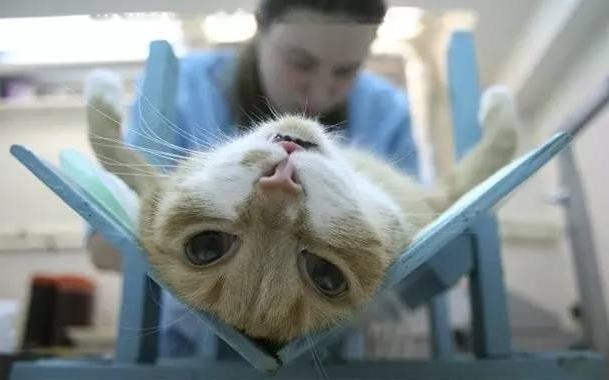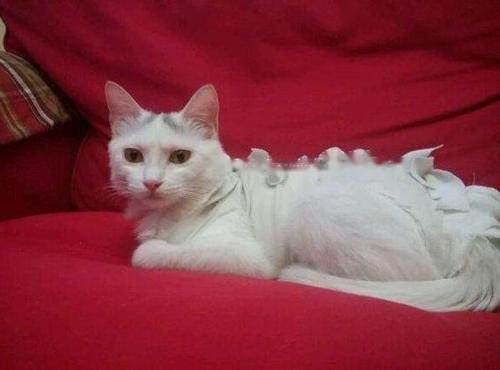When it comes to surgery, the word danger comes to mind right away. It is also a very dangerous thing to sterilize a female cat. The sterilization of a female cat is the most basic operation in surgery. For skilled surgeons, the chance of death from the surgery itself is almost zero.
Is it dangerous to neuter a female cat?
Not really. It is more difficult than male cats, and also involves issues such as abdominal opening and suturing. However, today's pet medical care has been gradually improved, and neutering of female cats is only a routine operation in the hospital.
A licensed veterinarian can practice it. As long as the relevant preoperative examinations are done well, and the surgical procedures are followed, there is no surgical risk if the postoperative care is performed well. Moreover, the current clinical application of inhalation anesthesia and intradermal suture technology greatly reduces the possibility of accidental surgery!

Benefits of neutering female cats:
As female cats age, female cats in constant heat may experience uterine ovarian lesions, mammary Tumors, especially malignant tumors and reproductive system infections, are life-threatening in severe cases.
We have done the following survey in the pet hospital: Recommended by veterinarians, 70%-80% of female cat owners will accept the advice of female cat neutering, and the rest of the owners are enduring the torture of the female cat's estrus After that, select the sterilization recommendation.
The neutering of a kitten not only saves the tragic outcome of stray children, but also greatly reduces the chance of a variety of diseases. A win-win for the cat and the owner!

give Matters needing attention when a female cat is neutered:
1. Fasting for 6-8 hours before surgery is required to prevent foreign objects from choking into the respiratory tract when vomiting during or after surgery.
2. Don't rush to let it eat after surgery, gastrointestinal peristalsis is slow after anesthesia, and gastrointestinal inflammation may occur if you rush to eat.
3. Excessive strenuous exercise, climbing stairs, and overeating should be restricted after surgery, and do not take a bath until the wound is completely healed (about 10-14 days). During the healing process of the wound, if there is blood oozing out of the wound, it may be that the wound has collapsed, and you should go to the hospital for a follow-up consultation.
4. Dogs should not be allowed to lick the wound after surgery to prevent wound infection.
5. Some dogs will vomit within a day or two after the operation. This is due to the normal response of the anesthetic to the stimulation of the stomach and intestines, and there is no need to go to the hospital.
Best time to neuter a female cat:
Best time to neuter a female cat Before sexual maturity, that is, before the first estrus at 6-7 months of age.
The neutering operation should be done as early as possible, and the female cat can be operated 4-6 months after birth. The earlier the time, the better the chance of avoiding reproductive diseases. Studies have shown that the older the neutered age, the greater the chance that the female cat will develop breast tumors in the future. But no research has shown that neutering female cats before they reach sexual maturity affects their development.
If your kitten is sexually mature, or is a parous female, it is recommended to do it during the interestrus period, the quiescent period of the female cat. Surgery should be avoided when possible.
As a companion animal, cats have been widely raised in the homes of the general public, and they are happily accompanied by their owners. The owner should always pay attention to the cat's physical and mental health, and the love given and the love in return will be infinitely upgraded!
![[Dog Training 5] The training method of pet dog dining etiquette](/static/img/12192/12192_1.jpg)





